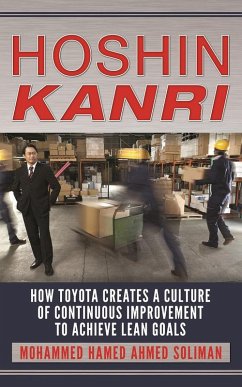The purpose of this book is to present a set of guidelines to be used in the application of lean strategy principles and tools in modern organizations. This book aim is to highlight the potential role played by lean strategy tools for strategic planning and strategic management in the reference to the Hoshin Kanri policy deployment system.
This book discusses several themes driven and concluded from Toyota that are required to deploy strategies and align goals.
The book highlights the potential for the Hoshin Kanri deployment process in manufacturing environments. It emphasizes the importance of leadership development and the usefulness of using the correct coaching behavior to support learning acquisition and decision-making.
The book demonstrates how Hoshin Kanri may be effectively used for strategic management and to improve communication from top to down when professionals are sufficiently trained and frontline staff is engaged.
In general, lean strategy deployment is still an emerging research topic addressed by only a limited number of references. Some of these references have explained Hoshin Kanri as a tool for strategic management and planning to achieve the goals and they explain how the method aligns corporate strategic objectives as defined and managed by senior managers (at the strategic level) with the plans and activities of middle management and teams (tactical level) and the work done by the employees (operational level). This process is called catching balls, as all three levels of management must negotiate back and force until they agree about the goals and the action plans. However, catching balls is just one aspect of Hoshin Kanri. What is usually miss is the philosophy and the culture which are the most important parts for a successful Hoshin Kanri process across the organization. This book is closing this gap.
Dieser Download kann aus rechtlichen Gründen nur mit Rechnungsadresse in A, B, CY, CZ, D, DK, EW, E, FIN, F, GR, H, IRL, I, LT, L, LR, M, NL, PL, P, R, S, SLO, SK ausgeliefert werden.


